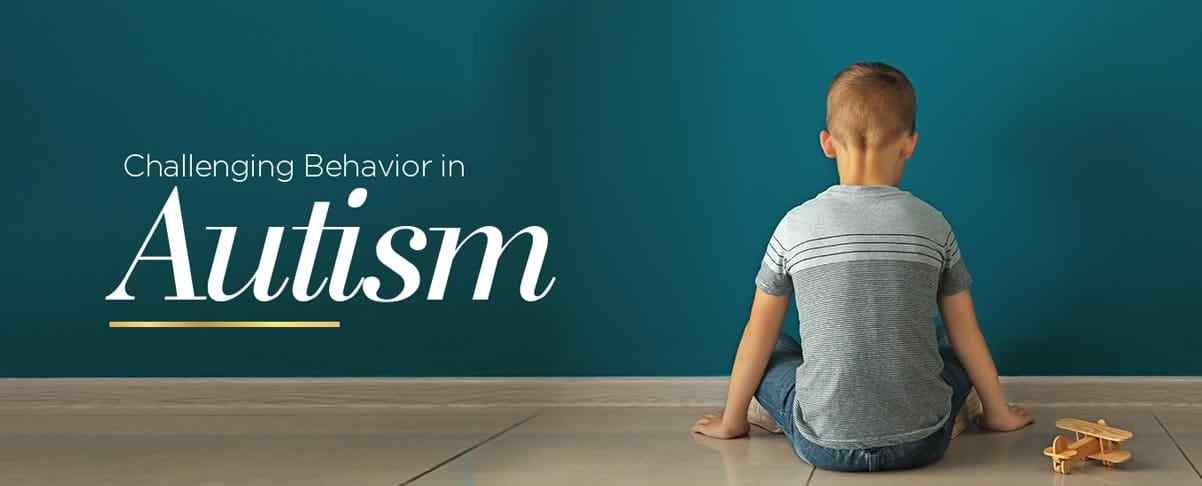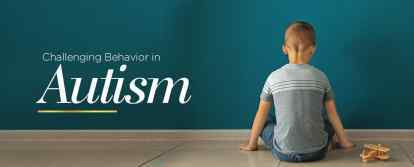Behavior Medication for Autism Spectrum Disorder (ASD)

I am the twitching finger and the flapping hand.
I am the silent toddler with downcast eyes and a tippy-toe walk.
I will make you have bad days and good days and bad days then good.
I live in each and every one of you, whether you know it or not.
Some days, I taste like shame and bitterness, burning up from a mother’s heart like sour indigestion.
But other days, I taste like the purest joy; like cotton candy and happiness and pride exploding within your heart.
It is up to you how you see me; as a nuisance, a tantrum, a disorder, or a curious lamb wearing the costume of a wolf.
You see, a still mind can still have great thoughts, and within even the quietest person, there is a voice- or a painting, or a song.
I am so many things. I am hope and possibility. I am music and dreams, kindness and color. I am gravity.
So please, before you panic or judge- remember my goodness.
I will teach you the real meaning of unconditional love; a love so powerful and strong it will rearrange your heart.
I am autism.”1
This is a snippet of what Austism Spectrum Disorder looks like through a mother’s lens. For some parents, a child’s diagnosis with ASD is one that unexpectedly distorts the picture perfect family that they had envisioned when a child comes into the world. But in researching through multitude of message boards, I get the sense that many parents come out stronger and with more purpose throughout their journey of raising a child with ASD.
ASD affects 1 in every 54 children of all racial, ethnic, and social economic backgrounds. Furthermore, ASD is 4 times more prevalent in boys than girls2. Some parents and caretakers may observe signs of autism in toddlers and babies as early as 6 months of age, such as:
-
Avoiding eye contact
-
Showing lack of interest in other children
-
Having little or restricted use of language or communication, and
-
Exhibiting irritability by minor changes in routine2
Every case of ASD is unique. For example, Asperger syndrome was once categorized separately from ASD but now falls on the spectrum. Asperger syndrome is considered to be high functioning autism or exhibiting milder autism symptoms3. Symptoms of autism are broad and diagnosis of autism in adults, adolescents and children can range from exhibiting several different types of behavioral difficulties. Some parents and caretakers of ASD children spend almost every day in a multitude of speech, language, motor, and behavioral therapy sessions. On the other hand, some people with ASD thrive in society with natural gifts and talents like Mozart, Michelangelo and other famous people with autism.
Autism awareness and early diagnosis in children by a professional by age 2 can result in better developmental outcomes4. However, many ASD children may grow up to display related conditions, such as aggressive or self-injurious behavior (SIB), attention deficit hyperactive disorder (ADHD), obsessive compulsive disorder (OCD), anxiety/agitation, depression, and social withdrawal. Many of these children need monitoring and assistance in daily activities. A challenging aspect for parents with ASD is that young children are often times unable to communicate their internal struggles and thoughts. Hence, deciphering if a medication or treatment plan is right for the child could be grueling.
Pediatricians specializing in ASD will often initiate various medical work-ups as part of the comprehensive evaluation. Gastrointestinal health, presence of food allergies, nutritional health, vitamin levels, immune health, and metabolic profiles are often analyzed. Since these factors are often attributed with ASD patients, the baseline goals are to improve gut health and decrease inflammation, thereby reducing overall energy-depleting reactions.5
Many ASD and Asperger’s patients are prescribed conventional medications to lower anxiety, improve attention and mood, and to treat seizure episodes. However, some parents may find giving their little children medications like Ritalin, Zoloft, and Abilify could be very daunting due to numerous side effects and potential negative long term outcomes. This is the reason why choosing a pediatrician with experience, knowledge, and open-mindedness in treating ASD is crucial in finding the appropriate and effective therapy.
Medication for Autism Aggression
The timeline of clinical research findings below highlight a potential therapy for ASD that we find extremely fascinating- Low Dose Naltrexone (LDN). Let’s take a closer look.
In 1988, Dr. Sandman’s research found that children with ASD exhibited prenatal protein dysregulation, particularly beta-endorphin. Children with higher levels of these beta-endorphins had higher correlation with displaying self-injurious behaviors (SIB), such as head banging, hitting oneself, excessive scratching and hand/arm biting. Traditional dosing of naltrexone (25mg, 50mg, 100mg) was given in 4 patients and results showed 3 patients had a reduction in SIB.6
In 1993, Leboyer and colleagues hypothesized that newborns showing excessive brain opioid activity may later display developmental symptoms related to autism, such as social withdrawal and isolation. Naltrexone was studied in autism in girls as two girls were given LDN dosed by weight: 1mg naltrexone per kilogram daily. Results showed decline in hyperactivity, SIB, and aggression. Improvements were also exhibited in attention and social behavior cues, such as, smiling and play interactions.7
Low Dose Naltrexone Pediatric Dosing
In 1996, Scifo and team suggested that there exists some deficiency in the link between brain-opioid and immune functions in autistic kids. What these researchers found was that behavioral symptoms in ASD patients were correlated with an abnormal distribution of major lymphocytes, specifically CD4 and CD8 ratio. Scifo studied 12 autistic kids by giving them a naltrexone dose based on weight at 0.5mg, 1mg, and 1.5mg per kilogram every 48 hours. Results showed that ASD symptoms were significantly improved in 7 out of 12 subjects, in addition to a normalization of CD4/CD8 ratio.8
After many years of observing naltrexone being used for ASD patients with different levels of autism, Elchaar and team decided to accumulate various clinical literature dating from 1966 to 2006 in order to summarize and make relevant conclusions. These researchers have found that LDN used in children were commonly weight-dosed ranging from 0.5mg to 2mg per kilogram per day. At this dosing regimen, LDN has been concluded in many studies to improve self-injurious behaviors in people with ASD diagnosis. In addition, the literature also confirmed a reduction in hyperactivity, agitation, irritability, temper tantrums, social withdrawal, and stereotyped behaviors. The most common side effect reported in clinical research is transient sedation. Although much of the literature Elchaar and colleagues studied were of small sample size and short term duration, they did conclude that a trial of naltrexone therapy may be beneficial for people with low functioning autism as well as high functioning autism symptoms, especially those with SIB.9
Low Dose naltrexone is not a new therapy at Harbor Compounding Pharmacy as we have been dispensing LDN for over 10 years. The majority of our patients use LDN for auto immune diseases like Hashimoto’s in conjunction with in-house compounded thyroid medications and have seen tremendous results. However, in the past 3 years, we have made leaps and bounds in our reach to discover what more LDN can do for our patients. We have enrolled our pharmacy into the LDN Research Trust group; we have attended LDN seminars in Portland, OR; we have hosted webinars with LDN specialty doctors. Most importantly, we have had many discussions with practitioners, pharmacists, and patients and shared countless hours of fascinating information and ideas amongst those with an open mind and open ears. Now, we want to provide this information to all our doctors and patients near and far.
Harbor Compounding Pharmacy believes that LDN can be a breakthrough therapy for children with ASD. We have recently been compounding LDN in various formulations specific for the child’s needs, including LDN suppositories, creams, and sublingual solutions. We have seen our doctors reporting positive outcomes in their patients and compliance for refills has been great. We hope to further our reach and provide the care that your child needs to improve his/her quality of life, and subsequently, your quality of life as a parent. Call Harbor Compounding Pharmacy and speak to our LDN specialists to learn more! Phone: 9494-642-0106



